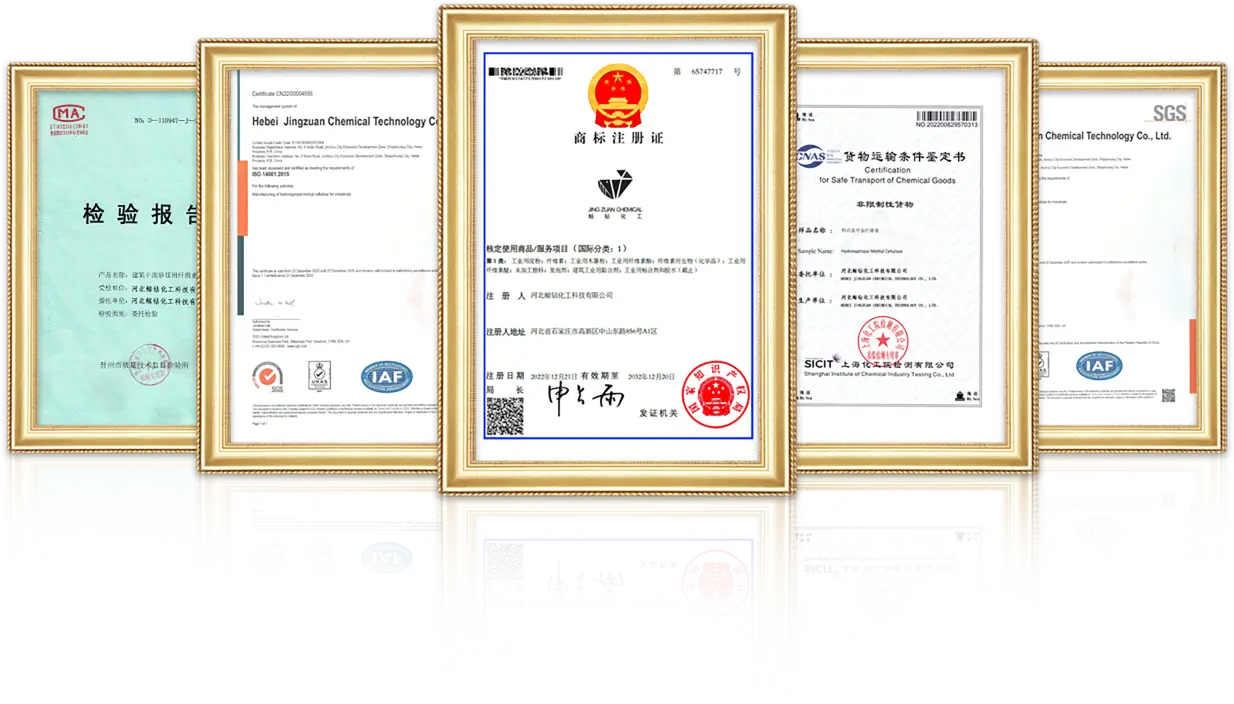
Abe . 03, 2024 15:21 Back to list
hydroxypropyl methylcellulose hpmc
Understanding Hydroxypropyl Methylcellulose (HPMC) Uses and Benefits
Hydroxypropyl Methylcellulose, commonly referred to as HPMC, is a versatile cellulose derivative that has gained popularity across various industries due to its unique properties and functionality. This non-ionic, water-soluble polymer is derived from natural cellulose and modified through a chemical process involving hydroxypropyl and methyl groups. HPMC is recognized for its suitability in a wide range of applications, including pharmaceuticals, food, cosmetics, and construction materials.
Properties of HPMC
HPMC is characterized by its excellent binding, emulsifying, and thickening abilities. Its unique chemical structure allows it to dissolve in cold or hot water, forming a transparent, viscous solution. This property makes HPMC an ideal thickening agent in many formulations. Additionally, HPMC is stable across a range of pH levels and temperatures, making it a reliable component in various applications. It is also known for being non-toxic and biodegradable, contributing to its appeal in sustainable formulations.
One of the standout features of HPMC is its ability to control the release of active ingredients in pharmaceutical applications. By modifying the viscosity and solubility parameters, HPMC can be employed in controlled-release formulations, ensuring that drugs are released slowly over time, thus improving therapeutic efficacy.
Applications in Pharmaceuticals
In the pharmaceutical industry, HPMC is extensively used as a binder and a coating agent in tablet formulations. Its binding properties are crucial for ensuring the integrity of tablets during manufacturing, transportation, and storage. Moreover, HPMC is frequently utilized in the production of hydrophilic matrices for sustained-release drugs. By adjusting the ratios of HPMC in the matrix, manufacturers can achieve the desired release profile, enabling patients to benefit from a longer duration of action with fewer dosages.
HPMC is also a key ingredient in ophthalmic preparations and gels due to its lubricating properties, enhancing comfort and effectiveness in eye care products. It reduces irritation and provides a moist environment for the eyes, making it an essential component in eye drops and ointments.
hydroxypropyl methylcellulose hpmc

Food Industry Applications
In the food sector, HPMC is valued for its role as a food additive, where it enhances texture, stability, and moisture retention. It acts as a thickener in sauces, dressings, and frozen foods, providing a desirable consistency that consumers appreciate. Additionally, HPMC is utilized in gluten-free baking as a substitute for gluten, improving the texture and structure of baked goods. Its emulsifying properties also help to stabilize emulsions, ensuring a uniform distribution of ingredients in food products.
Cosmetic and Personal Care Uses
The cosmetic industry benefits from HPMC's properties as well. It is commonly found in lotions, creams, and gels, where it serves as a thickening agent, emulsifier, and film-forming agent. HPMC improves the texture and application properties of cosmetic products, contributing to a pleasant user experience. Its ability to retain moisture makes it ideal for hydrating formulations, enhancing skin softness and elasticity.
Construction and Building Materials
HPMC is increasingly used in the construction industry, particularly in the formulation of tile adhesives, joint compounds, and other construction materials. Its water retention properties help improve adhesion and workability, allowing for a longer application time. Notably, HPMC contributes to the flexibility and durability of construction materials, making them more resistant to cracking and other forms of degradation.
Conclusion
Hydroxypropyl Methylcellulose is undoubtedly a multifunctional compound with a multitude of applications across diverse industries. Its unique properties such as water solubility, thickening ability, and compatibility with various substances make it an invaluable ingredient in product formulations. Whether in pharmaceuticals, food, cosmetics, or construction, HPMC continues to play a significant role in enhancing product performance and consumer satisfaction. As industries strive for innovation and sustainability, the demand for safe and effective ingredients like HPMC will undoubtedly grow, ensuring its place in future developments.
-
Unlocking the Benefits of HPMC Products: A Gateway to Versatile Applications
NewsAug.07,2025
-
Unleashing the Potential of HPMC Ashland: A Comprehensive Look
NewsAug.07,2025
-
Tile Bonding Cellulose: The Key to Superior Adhesion and Durability
NewsAug.07,2025
-
Hydroxypropyl Methylcellulose Powder: The Versatile Component in Modern Pharmaceuticals
NewsAug.07,2025
-
Hydroxyethyl Cellulose: The Versatile Solution for Various Industries
NewsAug.07,2025
-
Hydroxyethyl Cellulose (HEC): The Versatile Polymer for Various Applications
NewsAug.07,2025







